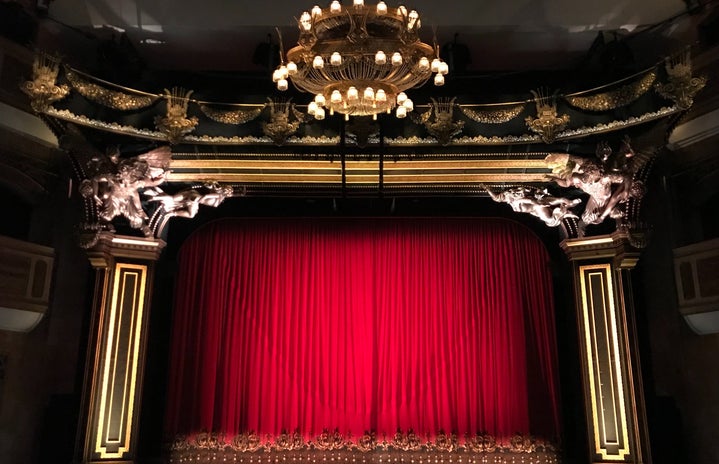Divorced, Beheaded, Died, Divorced, Beheaded, Survived….
This familiar ditty forms the inspiration for new West End musical Six which tells the tale of Henry VIII’s wives from a new perspective: a ‘half-dozen’ queen bees complete with Tudor-bedazzled fashion, synth-pop anthems and flaming vocals. Praised by critics and beloved by fans, the new musical has already gained a large following on account of its witty lyricism and originality, yet to me it seems there is more to this musical than toe-tapping rhythms and strobe lighting. Six addresses head on a very real issue plaguing the study of history: the demographic of its primary sources. In this way, Six questions what history remembers and what it overlooks.
It has long been held, and accepted I might add, that history is written by the victorious. Hence, we describe someone making an irrevocable decision as “crossing the Rubicon” following in Julius Caesar’s toga-clad footprints. History remembers the elevated, the successful, the conquerors. This is problematic when we come to discuss those who were historically less represented: the marginalised, the defeated, the vanquished. This is the central issue considered by Six; the musical deconstructs the limitations imposed upon Henry VIII’s wives, not just as historical figures, but as women.
Each song is offers each of Henry’s queens the chance to express their experiences on their own terms: No Way details Catherine of Aragon’s authoritative denunciation of Henry’s demands for a divorce as she states she’ll be ‘Queen for the rest of [her] life’. The breakdown of Henry’s first marriage to Catherine initiated the Reformation, in which England broke from the Roman Catholic Church to become its own state of religion. The song bluntly besmirches Henry’s motives for causing the break as selfish as he disregards his wife of twenty four years and daughter for Anne Boleyn. The lyrics tell of a woman who refuses to be belittled and dismissed, just as Catherine appears to have done in real life as she lived out the rest of her days in pious and regal splendour. Whereas the tongue-in-cheek All You Wanna Do recounts Katherine Howard’s life leading up to her marriage to Henry VIII. However, underneath the witticisms and fast-paced rhythms the sad truth of Katherine’s commodification is brought to centre stage. The sequential verses reflect the repetitive usage of Katherine by those around her. Passed from man to man since the young age of 13, Katherine was objectified throughout her life. In particular, she is treated as a business transaction through her marriage to Henry VIII, orchestrated by her father, that ‘hurled me and my family up in the world’. This undeniable usage of Katherine is brought to a heart-breaking conclusion as the song reflects that none of her relationships were ever different as the cycle continued and Katherine was used and manipulated by those around her. Asking the question ‘when will enough be enough?’, Katherine’s honesty illuminates the degrading historical treatment of women within courtly hierarchies who were objectified by those around them without consideration for their wants or wishes.
Finally, Haus of Holbein draws attention to the sickening beauty standards imposed upon women. The Euro-pop anthem recalls Hans Holbein, a famous German painter who travelled Europe curating portraits for the elite and wealthy. Issuing imperatives such as ‘You bring the
corsets, we’ll bring the cinches’ the audience is reminded of the rigid clothing styles that entrapped women in discomfort as they strove to appear beautiful to men. ‘Ignore the fear and you’ll be fine; we’ll turn this fear into a nine’ – another repeated mantra illustrating the harsh expectations of women to sit in solemn, silent submission.
These songs remember a time of limitation and constraint for women, a time in which women were little more than an extension of dominant patriarchal authority. Six strives to change this. Taking six well-known women from English history, the musical reanimates their lives and stories, striving to deconstruct their imposed collective identity and focus on each woman as an individual. This intention is as refreshing as the songs are facetiously entertaining. Anne Boleyn is no longer merely a courtesan, Anne of Cleves is no longer only known for her appearance: the women are no longer known only for their association to Henry. The songs breathe life into six figures who were once nothing more than a footnote in a primary school history class. The musical fights against the historical recollection of their lives solely through the lens of Henry VIII. These women are, in the words of Six, ‘One of a kind no category Two many years lost in his story, we’re Three to take our crown and glory Four Five more minutes: we’re Six’.
Should the study of history be limited to those who were historically more advantaged? This is the question Six poses and the answer is clear: they shouldn’t.
*Six will resume performances at the Lyric Theatre London as soon as possible. In the meantime, check out the study album online!


